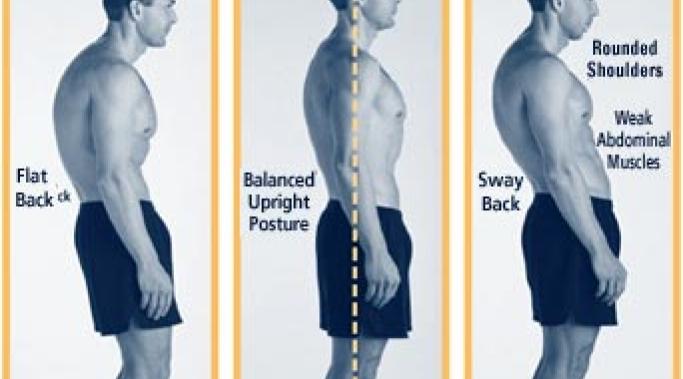Blogs
Self-kindness was never a coping strategy I had, even with my posttraumatic stress disorder (PTSD). Remaining 'busy' likely had a lot to do with having had a satisfying career. Many people who've experienced a traumatic event can understand the sentiment of keeping their minds occupied and off of their agonizing memories with tasks; when their lives abruptly change, things can feel unmanageable. I'd practiced medicine for 25 years and then survived a car crash, suffering multiple, life-altering injuries. My concerted efforts to practice medicine being unsuccessful meant that I had to retire and simply accept my disabilities.
This was devastating. The traumatic memories from childhood and the crash and its aftermath were overwhelming. There was no way to merely work it all away, which had been my typical strategy, as well as work having been my identity for years. I experienced a major depression after repeatedly telling myself with astonishing certainty, that "I am a failure."
While society may be quick to apply the term “mental illness” to a broad spectrum of behaviors, it is slow to acknowledge the idea that sanity itself is an elusive entity, difficult if not impossible to define, and largely reliant on context.
What do we mean by this? Well, let's pick a simple example. If you're a half-eaten jelly doughnut in Akron Ohio, you are also a half-eaten jelly doughnut in Chagrin Falls, Calcutta, Medicine Hat, and St. Petersburg. In other words, location has no impact on how you are perceived, valued, or for that matter, consumed.
The same cannot be said for behavior designated as inappropriate, which is to say, demonstrating some form of mental illness. Behavior considered the height of fashion in Cheboygan, (assuming there is fashion in Cheboygan) might be considered bizarre, disturbing, and unwholesome in Chad, Bongo Bongo, and Ulm.
One of the things you shouldn’t say to someone with bipolar depression is, “just look on the bright side.” This includes saying things like, “at least you’re not starving to death,” or, “there are many people worse off than you,” or, “just think positively.”
We would all thank you to stop saying these things.
But if you are suffering from bipolar depression, does looking on the bright side help or, indeed, matter at all?
Motivation, where does it come from? Sometimes, I think about my own motivation, or lack thereof, and wonder what inspires me to push ahead. According to Dictionary.com, motivation is the act or reason for behaving in a particular way. In my work as a therapist, I see children who are motivated by different things. Some are motivated by positive statements, others are motivated by being needy and still others are motivated by negative attention. For special needs children, or anyone else, motivation is no different.
My diagnosis of borderline personality disorder (BPD) is somewhat controversial; one doctor said it might be more accurate to say I have "traits of borderline." Whatever the words, I have at least one symptom of BPD--I self-injure. That's easy to define, but hard to explain. Here's my story.
One of the most difficult symptoms of depression is a lack of motivation. It's not that we don't want to feel better, we just lack the physical motivation to move and the emotional motivation to care if we move. Everything seems so difficult. Everything except staying under a warm blanket, hand on the remote, doing nothing, thinking nothing, feeling nothing. Depression and sleep always seem to go together, but laziness is not the cause of the lack of motivation depression brings.
Are your symptoms of borderline personality disorder flaring up with no apparent cause? Sometimes a major purchase can trigger symptoms of borderline personality disorder (BPD). Instead of the buyer's "high" that comes with something new, buyer's remorse can be felt. The resulting sadness can cause symptoms of BPD such as self-harm.
I talked about one of my professors a few weeks back in a post about ADHD and beneficial impulsivity and I'm here to talk about his wisdom again. We have this thing in physical therapy called a "physical therapy diagnosis" and my professor has some issues with the term - I'll explain. When you go your primary care physician, say, because you have a sore throat, they will give you a "medical diagnosis," like strep throat. When you go to a physical therapist with neck pain and we find that you have some postural issues, we'll "diagnose" you with: Impaired Posture. Or, if your physician says you have arthritis, we'll say you have "Impaired Joint Mobility." Seems like semantics at times, but what the heck is the point of a diagnosis anyway?
Do you have aches, pains, and digestive or mental health difficulties? Do you feel lethargic? Are you noticing a rise in skin breakouts or increased bad breath? Here's an idea for you to feel and look better: cleanse the body with H2O on the rocks. Here's how to do it.
I have worked in professions that focus on mentoring and guiding others towards positive behaviors. Many of the youth I have worked with have struggled with some kind of mental illness, disability or self-harm. For those who are in the same profession, it feels great to watch others succeed and move in a positive direction. It feels even better to know that you did something to help alter their lives in a healthy way.
Sure, it is important to focus on helping others. It’s great providing insight and ideas to those who may be seeking it. However, it is just as important to focus on yourself during times of personal struggle.
Sometimes, you push your needs away when they need to be first in line.










I believe she will only be able to rid herself of her demons, and hopefully her BPD as well, when she's ready to confront the abuse of her father. If she can put the blame where it belongs, she may stop projecting that victim/perpetrator cycle on the present men in her life. These demons are a metaphor for the purgatory she has created for herself. That reality has consequences in the real world, but it need not be real in the tangible sense. Exorcising her demons will require the expenditure of real physical energy and probably the destruction of aspects of her personality. If this ever happens, and it's possible but not probable, then these demons will evaporate. They are only as real as one's personality is real. In short, reality is not the question, it's what you make of the things you feel to be real.